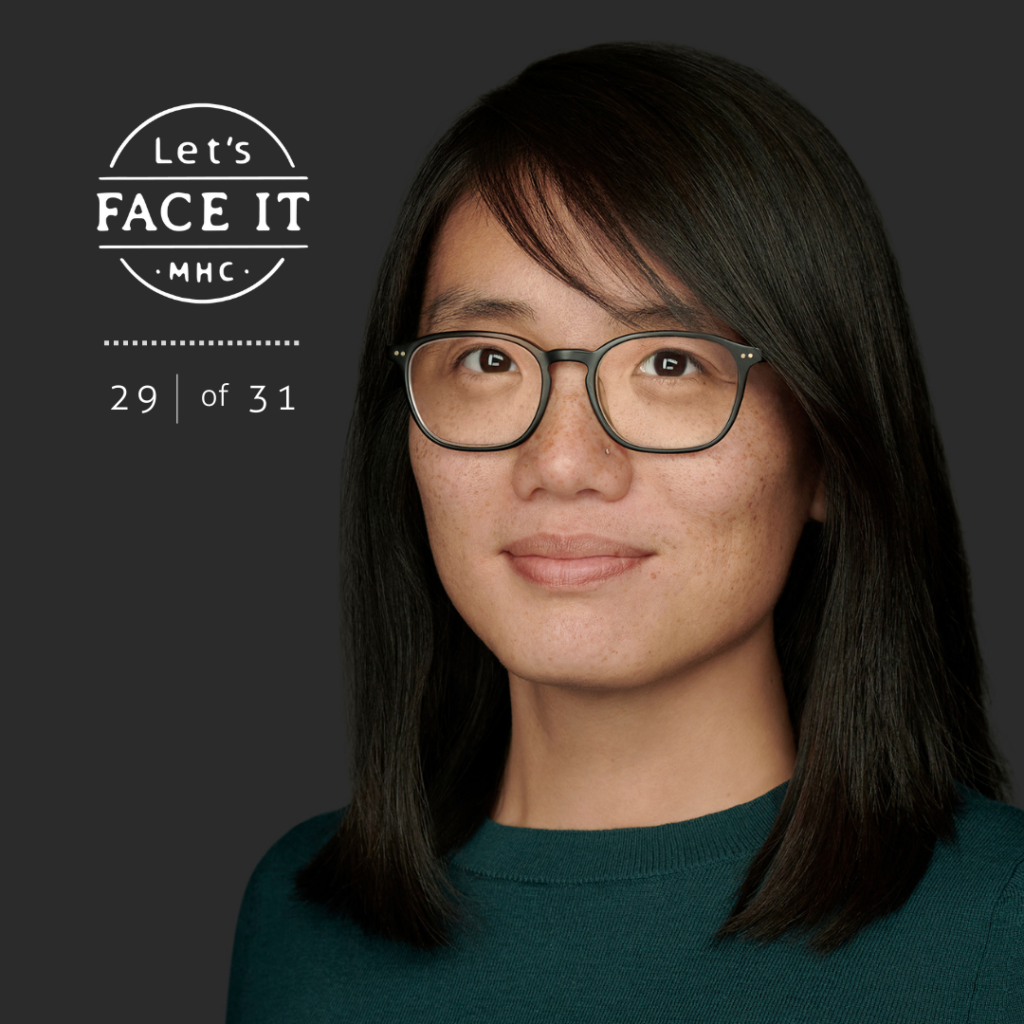#LetsFaceIt
 Quyên Trương knows firsthand how a life of holding back, of keeping secrets, can take a toll on health, both physical and mental. She has also seen how a lack of access and understanding of available medical resources can exacerbate recovery. Change, she says, is long overdue.
Quyên Trương knows firsthand how a life of holding back, of keeping secrets, can take a toll on health, both physical and mental. She has also seen how a lack of access and understanding of available medical resources can exacerbate recovery. Change, she says, is long overdue.
A refugee from Vietnam, Trương and her family immigrated to Connecticut when she was 7. Trương had to leave her friends, family and way of life to come to a place where she didn’t know the language. “There was a lot of vicarious trauma,” she says, referencing her father’s time as a prisoner of war before they came to the U.S. “But also coming to the U.S as a 7-year-old was very traumatic.” As the person in school learning English, she bore the burden of translating for her parents and her community.
Life in the U.S. was challenging. Her parents worked several jobs just to make ends meet. “I realized there was a lot of anxiety and stress and depression in my community and in my family,” she says. “I experienced my parents’ trauma and how it affected their mental health and how it affected their ability to survive.”
Trương’s father “carried a lot of ghosts and demons with him,” but he also, she says, was open about his trauma and struggles. “The way he dealt was to share explicit stories,” she says. “I learned the value of sharing your story — of opening up and making yourself vulnerable.”
Trương experienced her own traumas in childhood, but unlike her father, she bottled them up. Instead, she says, she channeled all these feelings into working really hard and doing well. She went to an Ivy League college for both her undergraduate and graduate schools.
Keeping silent worked for a while. “Then in my late 20s, all the trauma that had been bottled up came to light,” she says. “I hit a snag where I felt overwhelmed. Depression, anxiety, imposter syndrome. I felt like I was lost.”
“I struggled to know what to do with it. I couldn’t look at my accomplishments with any rationality. I felt like a failure,” she adds, noting she ultimately took a break from graduate school to get help. “I needed to really find peace in my life and to reconcile my story and to appreciate what I have rather than focus on the negatives and the trauma in my life.”
That experience helped point Trương toward working with others with lived experience, especially those having trouble accessing necessary and appropriate medical care. She worked for several years at Amplify Inc. before becoming a lawyer.
Increasing access to healthcare remains one of Trương’s passions, as is helping people realize that sharing their stories is critical both for personal recovery and to help expand community understanding around mental health issues. “There Is such stigma in the Vietnamese community and in low-income communities in particular that it makes it more difficult to talk about these things,” she says. “All communities are affected by these concerns but in some communities where the mode is survival — it’s more about getting through the day and paying the rent — there’s not much space to address stigma.”
She saw therapy as a privilege for more affluent classmates and peers. “I didn’t see that as a recourse for regular working class people or people with my background,” she says. “You need advocacy to get into certain spaces.”
Her father inspired her as well. “He went through a lot but he was able to enjoy his life in a way that I struggled to do in my 20s,” she says. “I think a big part of that was he was able to talk about his feelings and be vulnerable.”
He also realized, she says, that she was a good audience. Listening, Trương says, is a critical part of ending stigma and helping people access the care they need. “You don’t have to know the answer,” she says. “You just have to be present. There’s so much power in that. Each one of us individually can make such a difference in someone’s life.”
“When I was having trouble, it was the people reaching out who helped me, the friends who talked to me. It made me feel less alone,” she says. “But I had to get to a place where I could share what I was going through to open up these resources for myself. It’s so empowering to share and to be heard. It’s empowering to find your voice, to find your story.”
Each day in May, you will meet a new face and a new lived experience, because #LetsFaceIt there is no one-sized fits all when it comes to our wellbeing. View past posts here.
Looking for resources or support in CT but don’t know where to start? Contact MHC’s free Information & Referral line: https://www.mhconn.org/education/information

